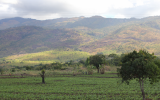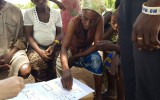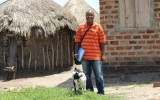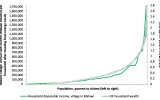Malawi
Showing items 1 to 15 of 16
View Categories
- Areas of expertise
- Capacity building
- Climate change
- Data
- Disasters and emergencies
- Famine prevention and food security
- Gender
- Income diversification
- Inequality
- Lake Victoria fisheries
- Livelihood resilience
- Livelihood Zones
- Livelihoods
- Monitoring and evaluation
- Nutrition and health
- Open source
- Policy and programme design
- Post-conflict
- Poverty research
- Refugees and displacement
- Social protection
- Technology
- Urban
- Vulnerability assessment
- Countries
- Hydromet
- Methods
- Resilience
- The organisation
-
Seeing the Story Behind the Dataset: Perspectives from an Internship
While studying at King’s College London, having the opportunity to work with EfD has been one of the greatest honors and the most rewarding parts of my experience in the UK. I was initially drawn to EfD’s mission of providing reliable data for policymaking in developing countries. Throughout my academic and professional background, I’ve found […]
-
Considering the health sector as an important user of Hydromet information
In September, I was able to attend the AMCOMET, African Ministerial Conference on Meteorology, forum in Addis Ababa. The focus of the forum was Weather, Water, and Climate Services, and the contribution of these ‘hydromet’ services to wider social and economic development is becoming increasingly evident as the reality of climate change hits both urban […]
-
The Household Economy Approach: Managing the impact of climate change on poverty and food security in developing countries (2014)
Also available at: http://www.sciencedirect.com/science/article/pii/S221209631400031X
-
Oiling the relationship between evidence and policy: prioritising data quality and integrity
LSE’s recent JSRP conference on politics and evidence in international development highlighted problems inherent in the ways ‘evidence’ tends to be defined and used in mainstream development discourse and practice. How can Evidence for Development’s individual household method (IHM) and current involvement in the ‘Assessing Rural Transformations’ project inform the discussion and help to oil […]
-
For richer, for poorer… inequality curves now look similar in the UK and rural Africa
Idly scanning the pages of the Observer on Sunday morning, this graphic caught my eye in Will Hutton’s article about inequality in Britain. Evidence for Development has a large collection of individual household income data from some of the poorest countries in Africa, and Hutton’s chart on wealth inequality in the UK reminded me […]
-
Improving smallholder farmers’ livelihoods through mango production and marketing project baseline IHM assessment, Salima, Malawi (2013)
The purpose of the baseline survey was to provide information that will assist in the monitoring and evaluation of Mango projects implemented by Self Help Africa (SHA) in partnership with ANAMARC in Salima District, Malawi. The study used the Individual Household Method (IHM) for data collection and data analysis and included four whole village surveys, randomly selected for the assessment.
-
Modeling the effects of maize price increases on rural household welfare [MA thesis, Stella Ngoleka] (2013)
The cases of Mtimaukanena in Dowa and Masumbankhunda in Lilongwe, Malawi
-
The cost of illness on agricultural production of rural households [MA thesis, Lauryn Khangamwa] (2010)
The case of Teuka village, Zomba District



